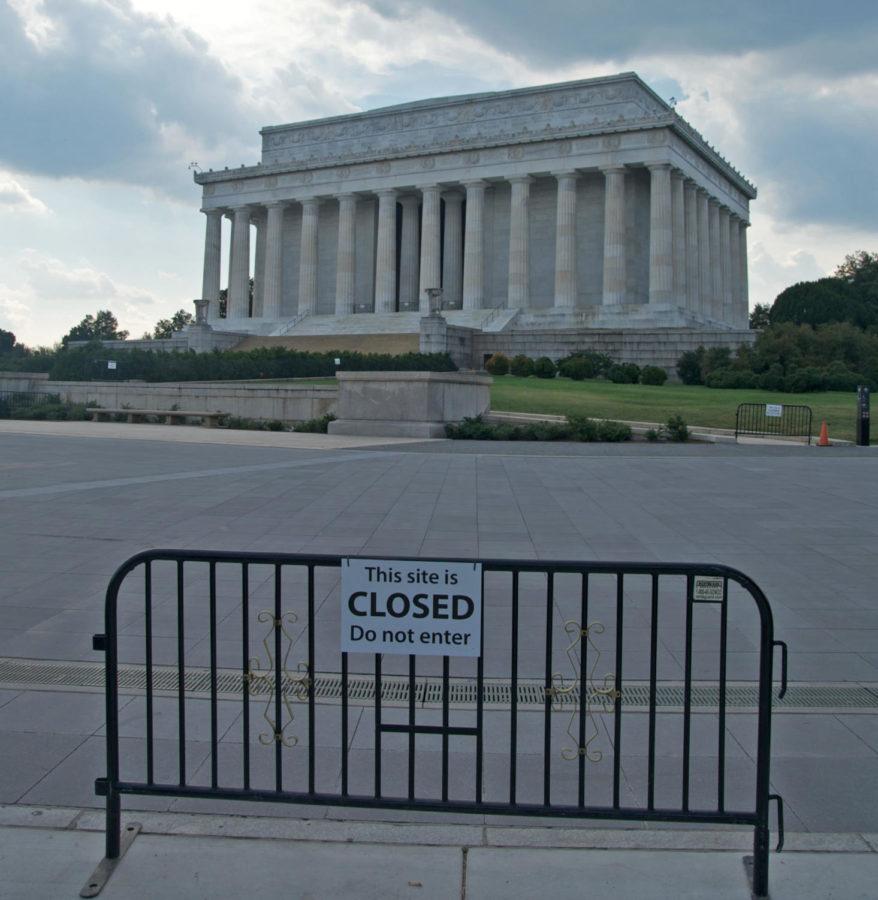Lawmakers avert government shutdown after hours of uncertainty
The government may be shut down again if Congress does not pass the budget by 11:59 p.m. Dec. 11. ISU Political Science Professor Mack Shelley is skeptical that Democrats and Republicans will pass the budget.
December 11, 2014
The House passed a $1.1 trillion spending bill the night of Dec. 11 after congressional gridlock threatened another government shutdown.
The House approved the funding plan by a vote of 219-206 after seven hours of trying to gain support.
The House also went on to approve an extra two days of funding for Congress. The Senate will now use the two additional days to debate the long-term funding plan passed by the House.
The bill passed by the House funded most of the $1.1 trillion, and the Senate has the next two days to debate parts of the funding package.
Lawmakers spent most of the afternoon and evening trying to gain support from each of their parties members after the House adjourned early that afternoon when Republican leaders were worried they didn’t have enough support.
President Obama and Vice President Joe Biden personally made calls to the Democrats in the House. White House Chief of Staff Denis McDonough also attended a Democratic caucus meeting to try to gain support.
House Republicans and Democrats had originally worked together throughout the week and originally came to an agreement on the $1.1 trillion spending bill, which was expected to easily pass well before the midnight deadline on Dec. 11, said Speaker John Boehner at a press conference on Dec. 10.
The House cleared a hurdle early Dec. 11 by narrowly advancing the bill in a procedural vote of 214-212. After floor debate ended just after 2 p.m. local time, the House abruptly adjourned instead of moving forward with the final vote, as originally planned.
Backlash continued from both sides of the aisle because of several provisions inside the bill.
Sen. Elizabeth Warren, D-Mass., first urged her colleagues in the House to vote against the bill because of provisions that would weaken “Dodd-Frank” regulations of Wall Street that Congress passed in 2010. House Minority Leader Nancy Pelosi, D-CA., spoke on the House floor just before 2 p.m. to signal she would not support the bill because of this provision.
Other Democrats were angry at a provision that would increase the amount of contributions individuals could give to political parties. Under the current language included in the bill, wealthy couples would be able to donate over $3 million to a single party in upcoming campaign cycles.
Some conservative Republicans were angry that the spending bill continued to fund the Department of Homeland Security, although only until February unlike the rest of bill which funds the government for nine months. Funding for Homeland Security would continue to allow President Barack Obama’s executive action on immigration to be implemented, which angered a group of Republicans.
Mack Shelley, political science professor and department chair, said these kinds of provisions or amendments in a bill are included when a member of a party wants something passed.
“These kind of get stacked into bills that pretty much have to be passed right at the last minute,” Shelley said about provisions in the budget. “This wouldn’t be the first time items actually slipped through without anybody noticing them. In this case, a couple things were caught.”
Rep. Steve King, R-Iowa, who represents Ames and the Iowa State campus in Congress, voted against the bill because of Homeland Security funding.
“You either defend the Constitution when the president violates it or you lose some of your ability and traction to do so later,” King told The Hill newspaper, angry at its funding of what he calls “executive amnesty.”
Sen. Chuck Grassley, R-Iowa, said in his weekly video address that the funding bill was necessary, but also called on the next Congress to change the way it passes appropriations bills.
“The omnibus bill is necessary to fund a host of government operations, including Homeland Security. The omnibus process is a quick fix that doesn’t offer the kind of scrutiny that federal spending should have,” Grassley said. “I hope that in the next Congress, we’ll return to regular order and go through the usual authorization and appropriations process. That process gives the opportunity for checks and balances on federal programs and spending.”
President Obama plans to sign the bill after approval from the Senate.







